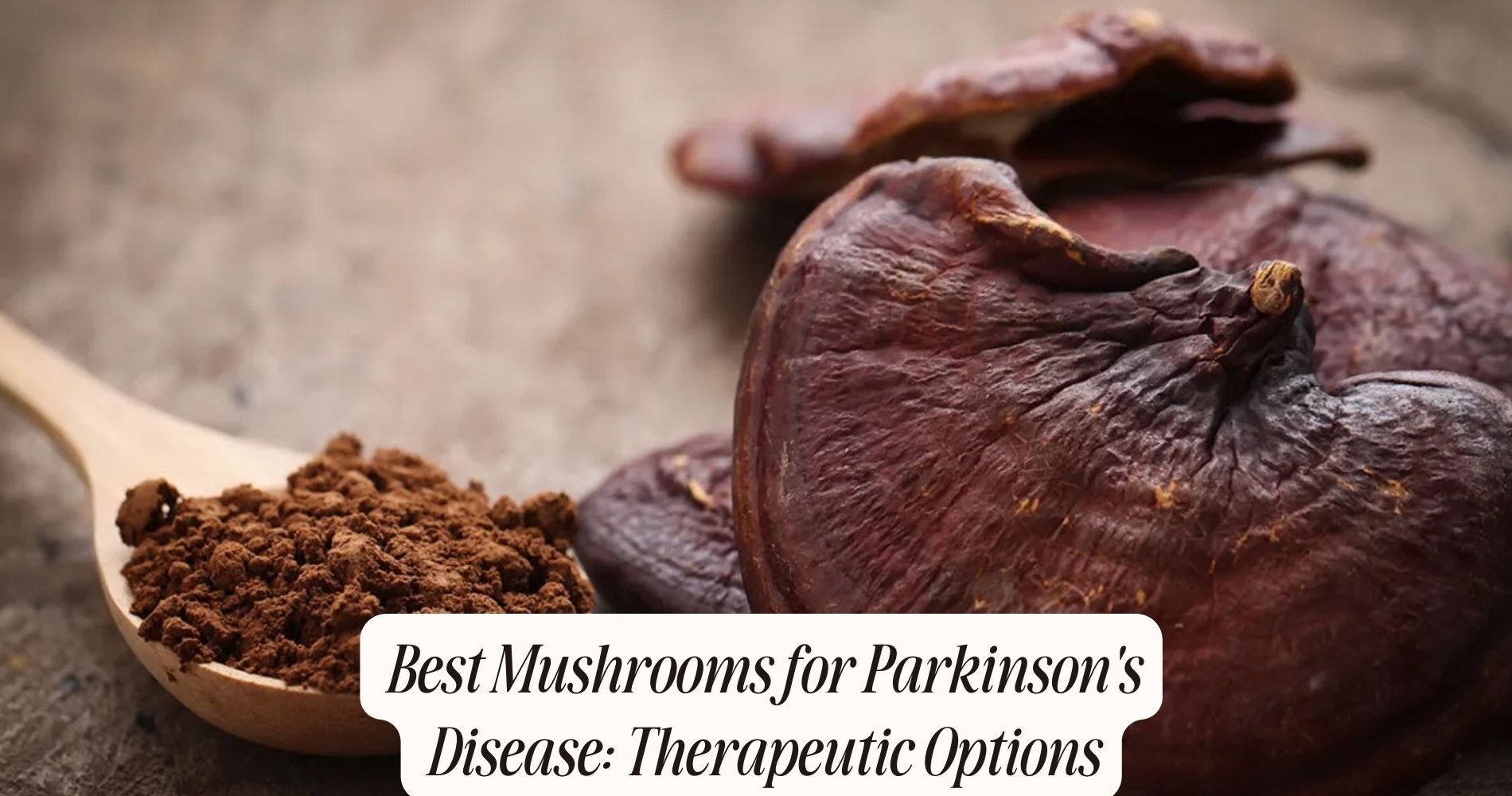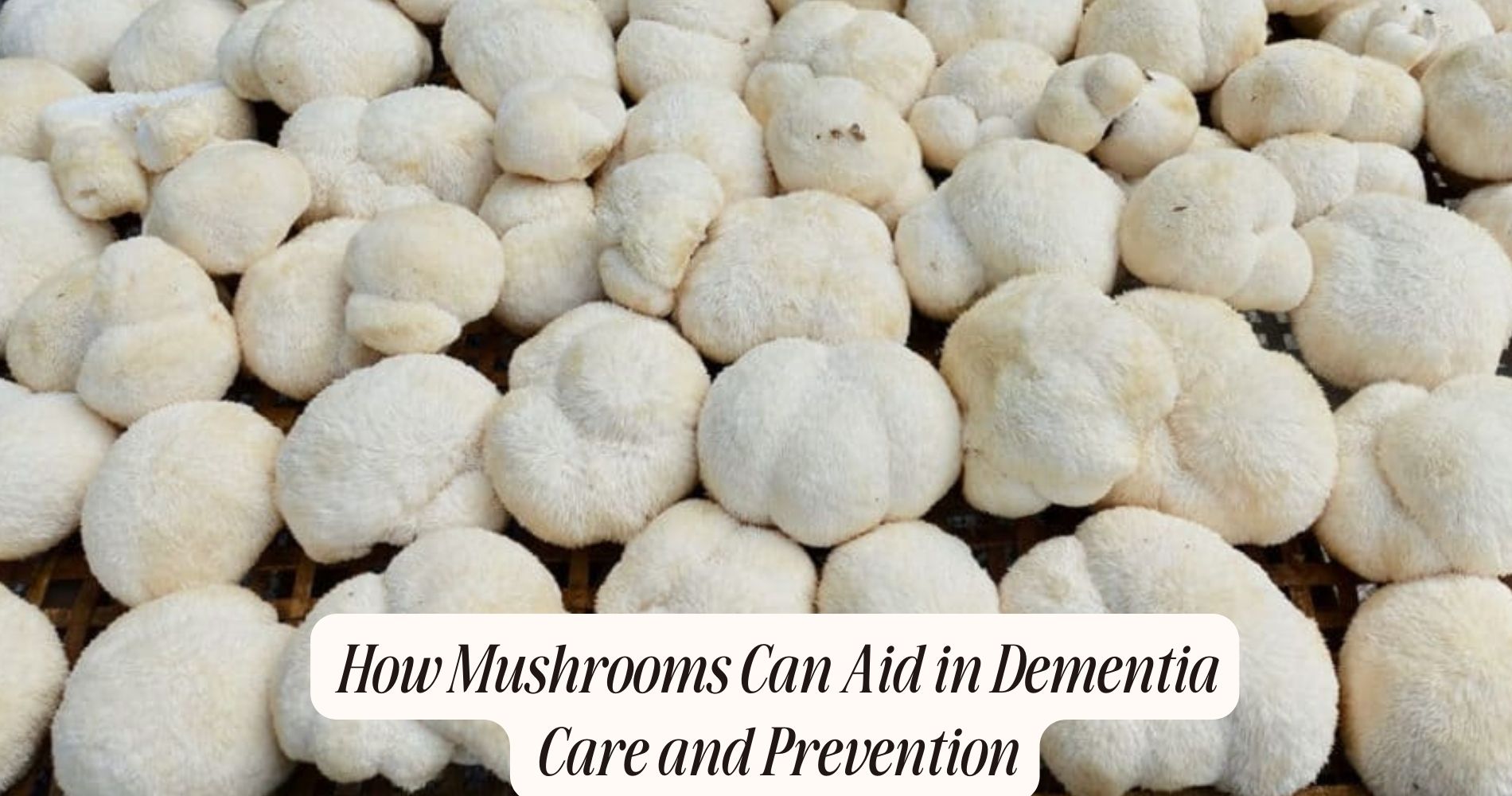
Mushrooms for Alzheimer's: Can They Really Help?
Exploring the potential benefits of mushrooms for Alzheimer's can be a valuable component of managing this neurodegenerative disease. Mushrooms such as Lion's Mane, Reishi, and Chaga have shown promise in supporting cognitive health. Lion's Mane is particularly noted for its ability to stimulate nerve growth factor (NGF), which may enhance cognitive functions crucial for Alzheimer's patients. Both Reishi and Chaga offer neuroprotective benefits due to their potent antioxidant properties, helping to combat oxidative stress associated with Alzheimer's.
Scientific research has highlighted that bioactive compounds in these mushrooms could reduce amyloid plaque formation and improve memory in animal models. While clinical trials are ongoing and more research is needed to fully establish their effectiveness in humans, the current findings are encouraging. To understand the full potential of how these mushrooms could aid in Alzheimer's treatment, further exploration is essential.
Types of Beneficial Mushrooms
Recent studies have identified several types of mushrooms, such as Lion's Mane, Reishi, and Chaga, that may offer cognitive benefits for Alzheimer's patients. When you consider medicinal mushrooms, you're looking at naturally occurring fungi with potential therapeutic properties.
Lion's Mane stands out among edible varieties for its potential to enhance cognitive function. Research indicates that it may stimulate nerve growth factor (NGF) production, which is vital for the maintenance and regeneration of neurons.
Reishi, another medicinal mushroom, has been traditionally used for its immune-modulating properties. Evidence suggests that it may also have neuroprotective effects, possibly reducing the inflammation and oxidative stress associated with Alzheimer's disease. As an edible variety, it can be consumed in teas, extracts, or even incorporated into meals.

Chaga, known for its antioxidant properties, is another edible variety that shows promise. Preliminary studies suggest that Chaga may help in reducing oxidative damage to brain cells, a key factor in Alzheimer's pathogenesis.
Incorporating these medicinal mushrooms into your diet could provide a multifaceted approach to managing Alzheimer's symptoms. However, consulting healthcare providers before making significant dietary changes is crucial.
Key Bioactive Compounds
One of the key bioactive compounds found in Lion's Mane is hericenones, which are believed to stimulate nerve growth factor (NGF) production critical for neuronal health. NGF plays a significant role in the growth, maintenance, and survival of neurons, which are often compromised in Alzheimer's patients. Hericenones' ability to boost NGF could potentially slow or even reverse neural degeneration.
In addition to hericenones, other bioactive compounds such as erinacines also contribute to cognitive function. Erinacines have shown promise in enhancing neuronal growth and repair. The bioactive extraction of these compounds is essential to their efficacy. Methods such as hot water extraction and ethanol extraction are commonly used to isolate these beneficial compounds, ensuring their stability and bioavailability.
Understanding compound interactions is crucial for maximizing therapeutic benefits. When hericenones and erinacines are combined, they may produce a synergistic effect, amplifying their neuroprotective properties. These interactions can enhance the overall impact on brain health, making the compounds more effective together than individually.
Scientific Research Findings
Numerous studies have demonstrated the neuroprotective effects of hericenones and erinacines, highlighting their potential in mitigating Alzheimer's disease symptoms. Researchers have found that these compounds, primarily found in Lion's Mane mushrooms, can stimulate nerve growth factor (NGF) synthesis, which is vital for maintaining healthy neurons.

Several preclinical studies on rodents have shown promising results, indicating reduced amyloid plaque accumulation and improved cognitive function.
Clinical trials involving human subjects are still in the nascent stages but are providing encouraging data. In one notable study, elderly participants with mild cognitive impairment showed significant improvements in cognitive performance after a 16-week regimen of Lion's Mane extract. While these early results are promising, more extensive and long-term clinical trials are necessary to establish definitive efficacy and safety profiles.
Dosage recommendations remain varied due to the limited scope of current research. Preliminary guidelines suggest that daily doses ranging from 1 to 3 grams of dried Lion's Mane extract can be effective. However, because the most suitable dosage can differ based on individual health conditions and tolerances, it's important to consult healthcare professionals for personalized advice.
Clearly, the scientific community is optimistic, but further rigorous studies are essential to confirm these initial findings.
Potential Cognitive Benefits
In addition to their neuroprotective properties, Lion's Mane mushrooms have shown potential in enhancing cognitive functions such as memory, focus, and mental clarity. Researchers have identified compounds like hericenones and erinacines in Lion's Mane that stimulate nerve growth factor (NGF) synthesis, essential for maintaining and regenerating neurons. By promoting NGF, these compounds could support memory enhancement and cognitive function.
Recent studies bolster these claims. A 2019 study published in the Journal of Alzheimer's Disease found that individuals consuming Lion's Mane supplements demonstrated significant improvements in cognitive performance compared to a placebo group. In another double-blind, placebo-controlled trial, participants reported increased concentration and mental clarity after eight weeks of supplementation.
You might wonder how this translates to practical benefits for Alzheimer's patients. Although research is still emerging, the neuroprotective properties of Lion's Mane suggest it could slow cognitive decline. By enhancing neuroplasticity and reducing amyloid-beta plaques, the mushrooms might help in maintaining cognitive functions longer.
While these findings are promising, they should be interpreted with caution. More large-scale, longitudinal studies are necessary to fully understand the cognitive benefits and long-term safety of Lion's Mane mushroom supplementation in Alzheimer's disease.
Practical Considerations
When incorporating Lion's Mane mushrooms into a regimen, you should consider the most effective dosage, potential side effects, and interactions with other medications. Research suggests that a dosage of 500 mg to 3,000 mg per day is commonly used in studies focusing on cognitive benefits. However, it's advisable to start at the lower end of the spectrum and gradually increase it, monitoring for any adverse reactions.
Preparation methods also play an important role in maximizing the mushrooms' benefits. Lion's Mane can be consumed in various forms, including fresh, powdered, or as an extract. Fresh mushrooms can be cooked and added to meals, while powdered forms can be mixed into smoothies or teas. Extracts, typically sold in capsules or tinctures, offer a concentrated dose and may be more convenient for consistent daily use.

Potential side effects are generally mild but can include digestive discomfort or allergic reactions. It's vital to discuss with your healthcare provider before starting Lion's Mane, especially if you're on medications for other conditions. This ensures you're not at risk of harmful interactions and can tailor the dosage recommendations to your specific health needs.
Frequently Asked Questions
Are There Any Risks Associated With Consuming Medicinal Mushrooms?
Yes, there are risks associated with consuming medicinal mushrooms. Potential allergies are a concern, and long-term effects are still not well-studied. It's important to consult healthcare professionals before incorporating them into your regimen.
How Much Mushroom Extract Should Be Taken for Alzheimer's Prevention?
For Alzheimer's prevention, you should follow dosage guidelines based on clinical studies. Typically, these studies recommend varying amounts, often around 1-2 grams of mushroom extract daily. Always consult your healthcare provider before starting any new supplement regimen.
Can Mushrooms Interact With Current Alzheimer's Medications?
You should be cautious about medication interactions when combining mushrooms with Alzheimer's drugs. There's potential synergy, but scientific evidence is limited. Always consult your healthcare provider to guarantee safety and avoid adverse effects.
Are There Any Dietary Restrictions When Using Mushrooms for Cognitive Health?
When using mushrooms for cognitive health, you should consider cooking methods and dietary combinations. Avoid high-fat preparations, as they can reduce benefits. Pairing mushrooms with antioxidants-rich foods may enhance their cognitive health properties, maximizing positive effects.
How Long Before Potential Benefits From Mushrooms Are Noticeable?
You might notice potential benefits from mushrooms within several weeks, according to anecdotal evidence. However, clinical trials suggest it could take months for significant effects. Always consult scientific studies to understand the variability in response times.
Conclusion
You've seen that specific mushrooms like lion's mane and reishi contain bioactive compounds potentially beneficial for Alzheimer's. Scientific studies suggest these compounds might improve cognitive function and slow disease progression.
However, while initial research is promising, more extensive clinical trials are needed to confirm these findings.
If you're considering mushrooms as a supplement, consult with a healthcare professional to verify they're safe and appropriate for your individual health needs.




